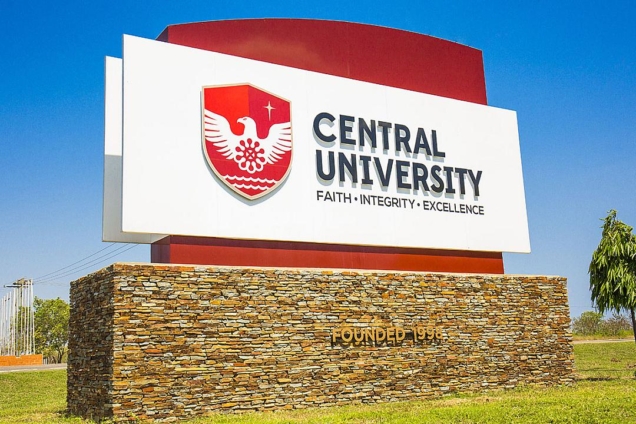The Vice Chancellor of Central University, Professor Bill Puplampu, has urged the government to introduce a Fee Voucher System (FVS) to support students attending private universities in Ghana.
Speaking at the 28th Matriculation Ceremony at the university’s Miotso Campus, he emphasised that such a policy would provide an alternative for students who are unable to secure admission into public universities and struggle to afford private tuition.
"We have argued and strongly suggested that the state must look into the matter of a fee voucher system across the higher education space. Such a system will ensure that, irrespective of the program you want, you have a voucher that can be applied to any institution that you go to, and perhaps if it's a private institution and the fee is a little higher, you top up and you go to school," Prof Puplampu stated.
He further noted that private universities play a crucial role in Ghana’s educational landscape but often face financial limitations due to a lack of government support.
"We do not think that state intervention should be left to the state (1:03) sector, and private market forces should be left to take care of the private space. An intentional (1:08) blend is important," he added.
According to the Ghana Tertiary Education Commission (GTEC), private universities currently enroll about 15 per cent of Ghana’s tertiary students, yet they receive no direct government subsidies.
Prof Puplampu argued that an FVS would not only ease the financial burden on students but also enhance private universities' capacity to deliver quality education.
Beyond advocating for financial support, he also recommended improvements to the Free Senior High School (SHS) policy, stating that adjustments are needed to enhance both access and quality.
“We believe that the free SHS is good. Pressure on teachers, pressure on the state, so a review is very much in order. However, we do not believe a review should lead to cutting back on the policy and possibly a reduction in the numbers who are accessing secondary education.
"We believe a review should concentrate on how to improve the stock of existing secondary and post-secondary schools. A review should provide a platform for improving the content and future-proofing secondary curriculum to reflect global realities,” he noted.
As Ghana’s higher education sector faces increasing demand, stakeholders continue to push for policy reforms that bridge the gap between public and private institutions, ensuring equitable access for all students.
Latest Stories
-
KTU Radio to participate in Bank of Ghana training workshop
2 hours -
Akwaboah to release new single ‘Smile Again’ featuring Nadia Buari
2 hours -
Actress Matilda Asare graduates from KNUST with Master’s degree
3 hours -
Ghana reaffirms global leadership in anti-corruption at UN Summit in Vienna
3 hours -
Practicing quality mental health on construction sites
3 hours -
Eric Opoku urges AU-EU to prioritize innovation for food security at ministerial conference in Rome
4 hours -
Stanbic Bank joins BRIDGE-in Agriculture programme to drive inclusive agricultural growth
4 hours -
Food Safety: Veterinary Services raises alarm over unsafe food handling
4 hours -
I won’t follow your path in correcting falsehoods – Kwaku Azar tells Torkornoo
4 hours -
Can Ghana consolidate gains of economic stability and growth experienced under Dr. Asiamah?
4 hours -
I’m not doing music professionally – Diana Hamilton
4 hours -
Spice Events wins big at Omega Psi Phi Fraternity Tournament
5 hours -
This Saturday on Newsfile: CJ probe, EC heads removal talks, BoG staff termination
5 hours -
EC mustn’t serve as both regulator and auditor of political party finances – OSP
5 hours -
KNUST graduates first MSc Petroleum Engineering cohort
5 hours

